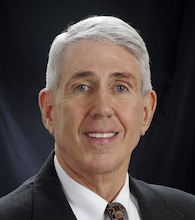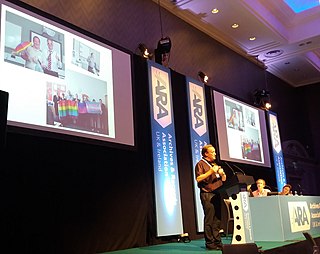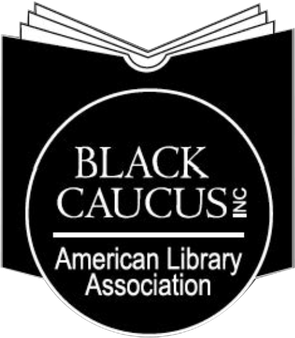
The John Newbery Medal, frequently shortened to the Newbery, is a literary award given by the Association for Library Service to Children (ALSC), a division of the American Library Association (ALA), to the author of "the most distinguished contributions to American literature for children". The Newbery and the Caldecott Medal are considered the two most prestigious awards for children's literature in the United States. Books selected are widely carried by bookstores and libraries, the authors are interviewed on television, and master's theses and doctoral dissertations are written on them. Named for John Newbery, an 18th-century English publisher of juvenile books, the winner of the Newbery is selected at the ALA's Midwinter Conference by a fifteen-person committee. The Newbery was proposed by Frederic G. Melcher in 1921, making it the first children's book award in the world. The physical bronze medal was designed by Rene Paul Chambellan and is given to the winning author at the next ALA annual conference. Since its founding there have been several changes to the composition of the selection committee, while the physical medal remains the same.
The American Library Association (ALA) is a nonprofit organization based in the United States that promotes libraries and library education internationally. It is the oldest and largest library association in the world, with 49,727 members as of 2021.
The Association for Library Service to Children (ALSC) is a division of the American Library Association, and it is the world's largest organization dedicated to library service to children. Its members are concerned with creating a better future for children through libraries.

Elonnie J. Josey was an African-American activist and librarian. Josey was the first chair of the Black Caucus of the American Library Association, having been instrumental in its formation in 1970; served as president of the American Library Association from 1984 to 1985; and was the author of over 400 books and other publications.
REFORMA: The National Association to Promote Library & Information Services to Latinos and the Spanish Speaking, more commonly known as REFORMA, is an affiliate of the American Library Association formed in 1971 to promote library services to Latinos and the Spanish-speaking. It is registered in Washington, D.C. as a 501(c)(3) nonprofit organization.
The Art Libraries Society of North America was founded in 1972. It is an organization made up of approximately 1,000 art librarians, library students and visual resource professionals.

James G. Neal is an American librarian, library administrator, and a prominent figure in American and international library associations. In 2022 President Joe Biden appointed him to the National Museum and Library Services Board which advises the agency on general policies with respect to the duties, powers, and authority of the Institute of Museum and Library Services relating to museum, library, and information services, as well as the annual selection of National Medals recipients.

Charles E. Beard was a notable librarian from the state of Georgia.
The Progressive Librarians Guild(PLG) was founded in New York City in January 1990 by librarians concerned with the library profession's "rapid drift into dubious alliances with business and the information industry, and into complacent acceptance of service to an unquestioned political, economic and cultural status quo," according to the organization's statement of purpose. The initial three organizers were Elaine Harger, Mark Rosenzweig and Elliot Shore. The PLG addresses issues especially relating to librarianship and human rights.

Clara Stanton Jones was the first African-American president of the American Library Association, serving as its acting president from April 11 to July 22 in 1976 and then its president from July 22, 1976 to 1977. Also, in 1970 she became the first African American and the first woman to serve as director of a major library system in America, as director of the Detroit Public Library.

Loriene Roy is an American scholar of Indigenous librarianship, professor and librarian from Texas. She was the first Native American president of the American Library Association when she was inaugurated in 2007.
Lotsee Patterson is a Comanche librarian, educator, and founder of the American Indian Library Association. She has written numerous articles on collection development, tribal libraries and Native American Librarianship. A Native American, Lotsee Patterson first became interested in collecting Native American objects, as her mother was a collections director. In the late 1950s, she read the 1983 publication The Museum Handbook of Native American History. She saw that Native Americans were less well documented than other cultures and often paid exorbitant prices for materials that were soon obsolete. Patterson is a University of Oklahoma Professor Emeritus of Library and Information Studies.

The Asian Pacific American Librarians Association (APALA), also known as the Asian/Pacific American Librarians Association, is an affiliate of the American Library Association (ALA). It was created to "address the needs of Asian/Pacific American librarians and those who serve Asian/Pacific American communities."
Librarianship and human rights in the U.S. are linked by the philosophy and practice of library and information professionals supporting the rights enumerated in the Universal Declaration of Human Rights (UDHR), particularly the established rights to information, knowledge and free expression.
The Jean E. Coleman Library Outreach Lecture presented at the annual conference of the American Library Association is tribute to the work of Jean E. Coleman to ensure that all citizens, particularly Native Americans and adult learners, have access to quality library services. Dr. Coleman directed the American Library Association, Office for Literacy and Outreach Services (OLOS) which served the Association by identifying and promoting library services that support equitable access to the knowledge and information stored in our libraries. OLOS focused attention on services that are inclusive of traditionally underserved populations, including new and non-readers, people geographically isolated, people with disabilities, rural and urban poor people, and people generally discriminated against based on race, ethnicity, sexual orientation, gender identification, age, language and social class. The Jean E. Coleman lecture is now sponsored by the Office for Diversity, Literacy and Outreach Services (ODLOS).
The Chinese American Librarians Association or CALA, promotes the Chinese culture through the outlet of libraries and communicates with others in the profession of librarianship.
The American Indian Library Association (AILA) awards are presented every two years to recognize the most outstanding contributions to children's literature by and about American Indians. The awards were established as a way to identify and honor the very best writing and illustrations by and about American Indians. Books selected to receive the award will present American Indians in the fullness of their humanity in the present and past contexts.

The field of library science seeks to provide a diverse working environment in libraries. Ways to change the status quo include diversifying the job field with regards to age, class, disabilities, ethnicity, gender identity, race, sex, and sexual orientation.

The Black Caucus of the American Library Association (BCALA) is an affiliate of the American Library Association (ALA) that focuses on the needs of African American library professionals by promoting careers in librarianship, funding literacy initiatives, and providing scholarships.
Cheryl Metoyer is an Eastern Band Cherokee researcher and professor of library and information science. Her research is focused on Indigenous systems of knowledge, especially in relation to American Indian and Alaskan tribal nations, as well as ethics and leadership in cultural communities. She holds the position of Associate Professor Emeritus and the Director of the Indigenous Information Research Group (IIRG) at the iSchool at the University of Washington.









